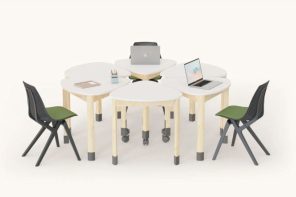The latest briefs from NZCER’s National Survey of Schools highlight important factors in creating positive experiences in Innovative Learning Environments (ILEs), as well as predictors of teacher morale and sentiment towards NCEA changes.
Every three years, Rangahau Mātauranga o Aotearoa / New Zealand Council for Educational Research conducts the National Survey of Schools. In its most recent survey, it asked teachers and principals about everything from workload and wellbeing to the latest innovations in the classroom, providing a comprehensive summary of the state of English medium schools.
NZCER is pleased to be releasing this series of research briefs, highlighting school-wide and classroom factors that can support teachers to thrive.
Brief 1, Teacher experiences working in Innovative Learning Environments (ILEs), highlights the importance of ongoing professional learning and development (PLD) and improved digital resourcing to improve ILE experiences, as well as improving staff morale and workload.
Brief 2, PLD and school-wide wellbeing as predictors of teacher morale and workload, shows how a culture of PLD and school-wide plans to manage social behaviours both enable and shape positive classroom experiences, and have positive links to overall morale levels in a school.
Brief 3, PLD, NCEA changes, and teachers’ work, highlights the links between attitudes towards NCEA changes, an ongoing culture of PLD and knowledge of how NCEA changes can improve outcomes for Māori and Pacific learners.
These briefs provide a snapshot of key areas from the data, identifying variables that can affect the school environment while also providing examples of good practice from the responses. Key findings across all three briefings include:
- Reliable digital resourcing and a strong culture of ongoing PLD are positively related, and both predict positive experiences of working in ILEs.
- A strong culture of ongoing PLD is positively associated with good-practice classroom strategies and practices and is associated with teachers reporting more positive experiences of their work.
- When teachers have more positive attitudes towards the NCEA changes in general, they are more likely to understand how these changes can improve outcomes for Māori learners, Pacific learners, and those with disabilities and who need learning support.
“Across the briefs, there is a common theme – the importance of having systems and processes in place that support teachers and their practice,” explained Kairangahau Matua Mohamed Alansari.
“Teachers are more likely to report good working experiences if their schools support them and create ongoing opportunities for development and learning – particularly as those teachers navigate new challenges and changes.”






